Two weeks of no e-commerce
The magic of the Aegean, the land of Rafael Nadal and the importance of immersive hobbies outside of work.
While I normally like to focus my articles on e-commerce philosophy, I must admit - it’s hard to resist the urge to talk about a very important part of work: not working. Time off is hard to come by when you own and operate a company. However, as all Europeans soon embark on their usual ‘out-of-office’ period for what is essentially the entire summer, I felt fortunate to grant myself a two-week ‘break’ to adventure across the Aegean (Turkey) and Mallorca with family and friends.
**If you were looking for advice on your ads, this may be the wrong newsletter for you this week**
The magic of the Aegean


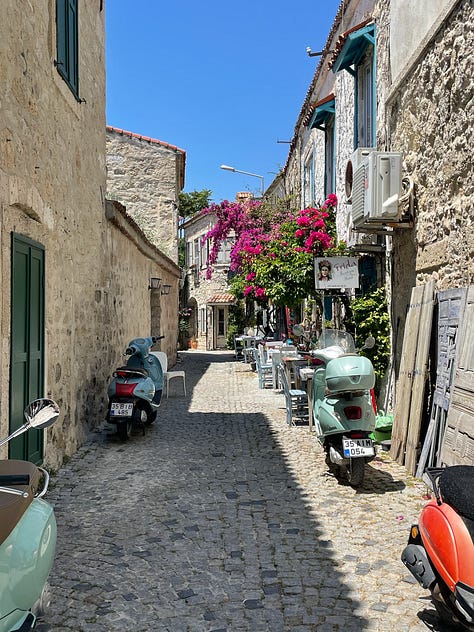
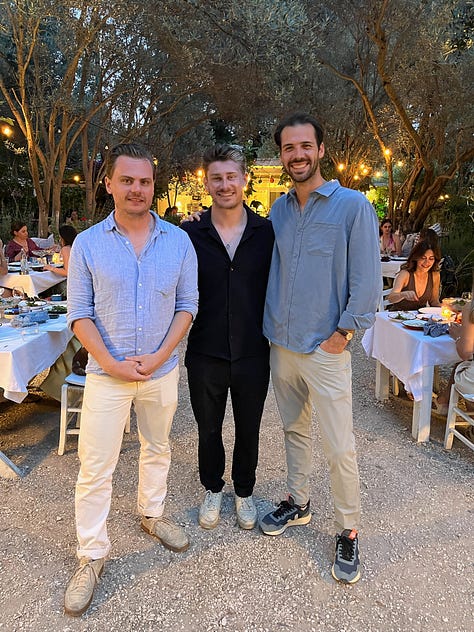
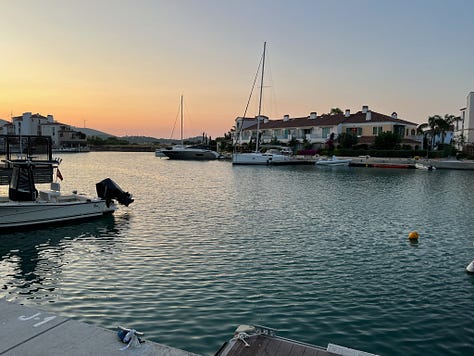
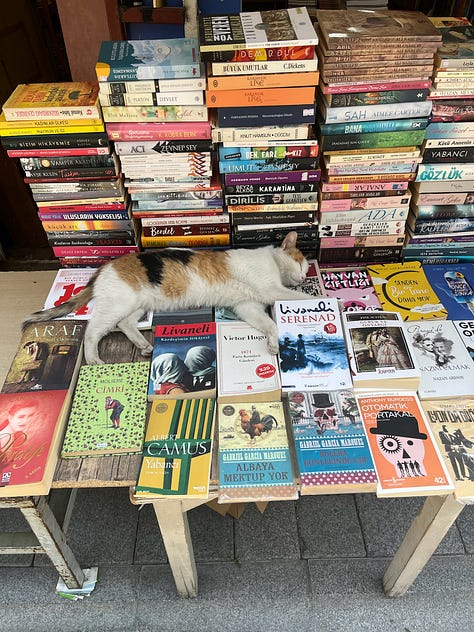
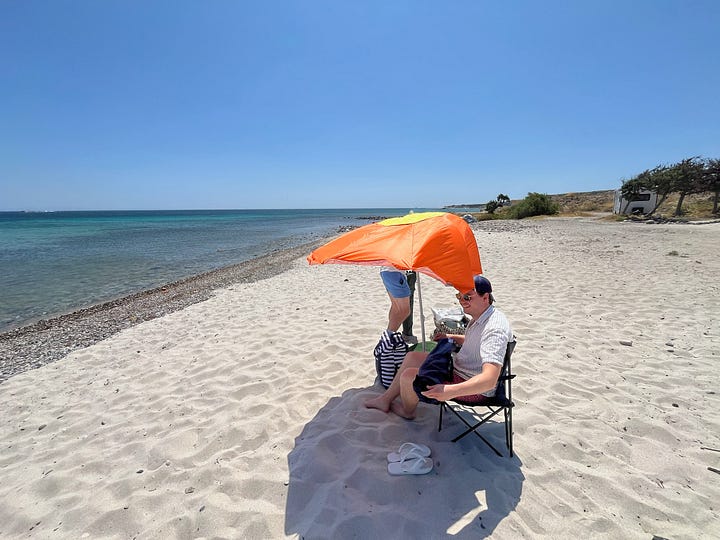

The Aegean Sea stretches between the Greek islands and the western edge of modern-day Turkey (or Türkiye, as the government’s now rebranded). Picture 3,000-year-old abandoned amphitheatres, emerald-green waters, cobbled streets where pink bougainvilleas drape across the walls, and water so cold it’ll have you jumping out of your shorts. At the tip of the peninsula lies the small town of Alaçatı, about an hour’s drive from the ancient city of Smyrna, today known as Izmir - with views across to the Greek island of Chios.
Surrounded by the same seas where Odysseus battled high winds and mythical monsters, this little slice of the Mediterranean has been my home since I was a kid. I could think of no better excuse to bring the fellas down to experience it for themselves. After a week spent in a food coma, 1,000+ cumulative hours of skipping the Waboba ball (highly recommend), a few frosty Bomonti’s and several failed attempts at putting up our little umbrella (which is no more), we concluded our week with eyes set on a sequel to our adventures.
Flashback to 1990, when my parents met while working in Izmir. Back then, Alaçatı and the Çeşme peninsula were still an undiscovered paradise. The coastline was dotted with small, simple beach houses owned mostly by locals, marinas with one hosepipe to go around, rusty fishing boats, and fish restaurants made up of eight plastic chairs and a BBQ. The beaches were quiet and boasted a perfect crosswind designed for the windsurfers that were locals. However, today, Alaçatı stands as a perfect example of social media–driven gentrification. Whether or not that’s a positive thing, at least for us remains a family debate.
Since the birth of Instagram, Alaçatı, like Tulum or Positano - quickly built a reputation as the go-to summer hotspot, attracting real estate investors and drawing just about everyone from Istanbul to the peninsula each year. Even locals tend to clear out in August, as the population swells from 50,000 to nearly a million at the height of the season.
Today, with dozens of surf schools lining the original surf beach, yachts on waiting lists for a spot in the marinas, modernised beach clubs, and new boutique hotels opening every year, the whole peninsula is hardly recognizable. While the charm of the town is still there, thanks in part to protected status laws that preserve its character, if you’re not keen on spending £13 for a Negroni at a bar, you might want to time your visit for the quieter months.
Mallorca, sign language and geopolitics
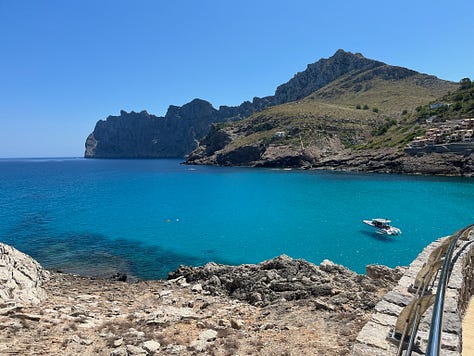





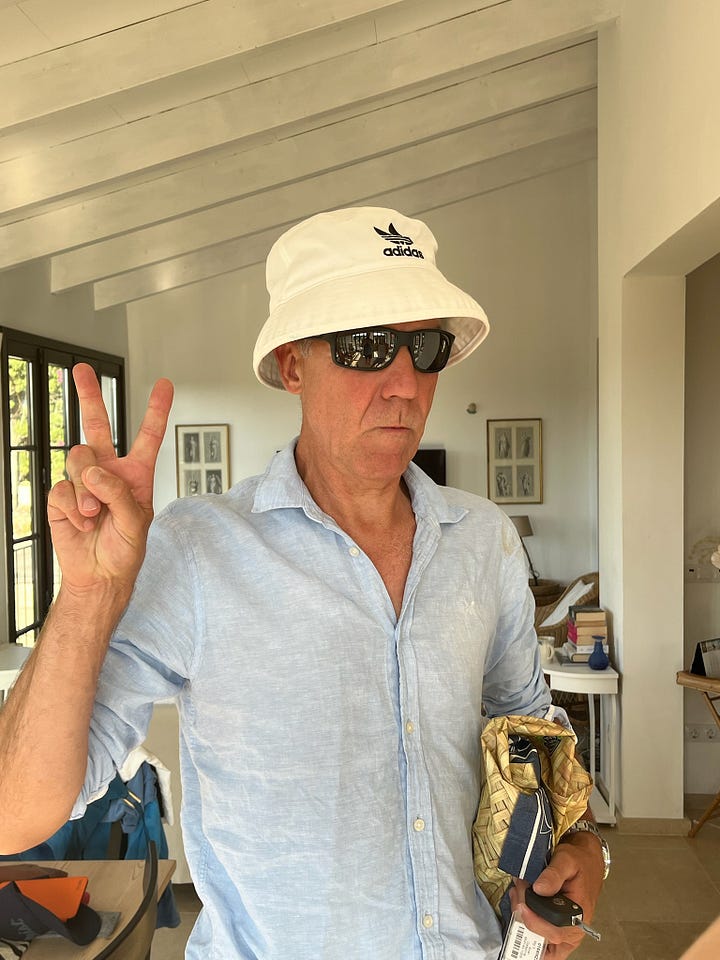
As a kid, Mallorca, that beautiful little island off the coast of Spain, meant one thing: Rafael Nadal. Over time, it became more about turquoise waters and generous pours of gin and tonic (though I’ve always been more of a beer guy).
When I first joined Emily’s family on a trip to Devon, I was told more than once, that drinking and board games were at the heart of every Brookes family holiday. Five years on, I’m still just as hopeless at Monopoly Deal (dare I say it, but it’s more fun the original), but at least my tolerance now somewhat matches the family average.
Spending a week in Mallorca with Emily and her family gave me the chance to do two things I rarely do back home. First, and most importantly, I practiced my sign language. Emily is a CODA (a hearing child of deaf parents), and while her family is very hearing in their day-to-day life, I learned a valuable lesson: a little sign goes a long way.
Second - I read. If you know me well, you’ll understand the magnitude of this achievement, as I’ve never been one to be able to stay solitary and read for very long, generally the length of a Financial Times article is my average limit. However, for the first time, in my not so extensive reading career, I read a book that totally captured my attention and interest: Prisoner’s of Geography: New Edition.
Tim Marshall breaks down global geopolitics in simple, accessible terms, explaining how geography shapes the decisions nations make, for better or worse. From China’s vulnerability in the shallow waters of Taiwan, to the rising force of India or how Europe’s reduced requirement to source oil and gas from Russia is creating a buyers market in Asia for Russian natural resources! I promise it’s enjoyable, and maybe not how I just described it…
Where’s your safe zone?
"If you don’t need your phone, but you bring it with you and place it on the table, you're sending a subconscious message to the people around you: 'You’re not the priority, whatever might come through on this device is.” - Simon Sinek.
One of the biggest challenges of being self-employed is learning how to separate work from downtime. As most entrepreneurs know, switching off isn’t easy, it’s hard to ignore the constant pull of urgency when you think your business depends on you.
For me, my safe zone has always been behind my laptop. Sitting at my Mac, I feel in control, or at least aware of everything happening in the business. That sense of oversight brings comfort. The same goes for always keeping my phone nearby, just in case a client or director calls. It creates a sense of security, a reassurance that things won’t fall apart while I’m away.
But something I’ve come to realise is that we often overestimate how much we’re needed and underestimate the power of delegation. Jeff Bezos once said people tend to overestimate risk and underestimate opportunity. The same applies here, at least I’ve found. There’s real value in stepping away. Not working and even not thinking about work is often the most productive thing you can do.
That’s also why having a hobby that demands your full attention is so important, it forces you to disconnect. If I’m at the gym with 60 seconds between sets, my mind drifts back to work almost immediately. Slack’s pinging notifications and I quickly lose focus. But on a tennis court, if I lose focus for even a few seconds, I may get a ball to the face. So, you have to be fully present. Sometimes, it’s as simple as leaving your phone far, far away.





Ecommerce stops for no man!